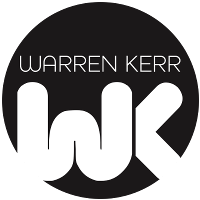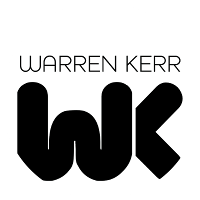Understanding why leasehold enfranchisement is crucial for property buyers in the UK, especially when considering leasehold properties, is important. This process allows leaseholders to gain more control, potentially remove ground rent, and increase property value. It’s crucial for prospective buyers and current leaseholders to grasp how enfranchisement works for a smooth transaction or ownership experience.
In this guide, we’ll break down leasehold enfranchisement and explain everything you need to know about leasehold property rights. Understanding these rights is crucial for leaseholders looking to secure more control over their property.
Ready to explore your leasehold enfranchisement options? Contact our team today on 020 7358 1188 for expert advice and guidance.
We understand the intricacies of leasehold enfranchisement. We're here to provide you with clear, expert advice every step of the way, helping you secure your property for the long term.
What Is Leasehold Enfranchisement?
Leasehold property rights and enfranchisement refer to the process by which leaseholders can either purchase the freehold of their property or extend their lease. This process gives leaseholders more control over their property, reducing the uncertainty of short lease terms and eliminating the costs associated with ground rents.
Property search agents can assist leaseholders in navigating the enfranchisement process, helping them secure the freehold or extend their lease for enhanced property value and long-term security.
Types Of Leasehold Enfranchisement
1. Collective Enfranchisement
Collective enfranchisement allows a group of leaseholders, often in the same building, to jointly purchase the property’s freehold from the current owner. This gives leaseholders greater control over property management, including maintenance fees and decisions about the building’s upkeep.
To qualify, at least two-thirds of the leaseholders must participate, and the property must contain at least two flats.
2. Individual Enfranchisement
Individual enfranchisement allows a single leaseholder, typically of a house, to purchase the freehold of their property. This is ideal for homeowners who wish to secure their ownership, ensuring the lease doesn’t expire and make the property harder to sell.
3. Lease Extension
For those not interested in buying the freehold but wanting to secure their leasehold property, extending the lease is a practical option. Leasehold properties typically come with a fixed-term lease that loses value as the term shortens, making it harder to sell or secure a mortgage.
Extending the lease adds security and can also boost the property’s value, providing long-term stability for the leaseholder.
Who Can Apply For Leasehold Enfranchisement?
Not everyone is eligible for leasehold valuation. Several conditions must be met before a leaseholder can apply for enfranchisement, whether it’s collective or individual. These conditions can vary depending on the type of enfranchisement and the property in question.
1. For Collective Enfranchisement
For collective enfranchisement, the property must contain at least two flats, with two-thirds of leaseholders agreeing to participate. The building must be at least 50% residential, and leaseholders should have owned their leasehold for at least two years.
2. For Individual Enfranchisement (Houses)
For individual enfranchisement of a property, it must be a house, not a flat. The leaseholder needs to have held the lease for at least two years, and the lease should have over 21 years remaining.
3. For Lease Extensions
To extend a lease on a flat, the leaseholder must have owned the leasehold for at least two years, and the lease must have more than 21 years remaining.
To learn more about the key factors to consider when buying property in Southeast London, visit our detailed blog here.
Benefits Of Leasehold Enfranchisement
1. Increased Control Over the Property
When leaseholders collectively purchase the freehold, they gain more control over the building’s management. This can include deciding on repairs, maintenance, and management fees, which are usually controlled by the freeholder.
2. Longer Lease Term
For individual enfranchisement or lease extensions, the primary benefit is that the leaseholder secures a longer lease term. A leasehold property with a shorter lease can be harder to sell and more difficult to mortgage. A longer lease adds value to the property and ensures stability in ownership.
3. Increased Property Value
Purchasing the freehold or extending the lease often leads to an increase in property value. A property with a long lease or with its freehold owned by the leaseholder is generally more attractive to potential buyers.
How To Apply For Leasehold Enfranchisement
1. Assess Eligibility
Before applying, make sure you meet the necessary eligibility requirements. This can include ensuring that the property meets the conditions for collective or individual enfranchisement or that you have owned the leasehold for the required length of time.
2. Obtain Legal Advice
Enfranchisement can be a complicated legal process. It’s recommended that leaseholders seek professional legal advice to ensure they understand the rights and responsibilities associated with enfranchisement. A solicitor specialising in property law can help you navigate the process.
3. Valuation Of The Property
A qualified surveyor will need to conduct a valuation of the property to determine how much the freehold or lease extension will cost. The price will depend on factors such as the length of the lease, the value of the property, and the ground rent currently paid.
4. Serve The Notice
Once you have all the necessary information, you or your solicitor will need to serve notice to the freeholder informing them of your intention to pursue enfranchisement. This is a formal process and must be done in compliance with the law.
5. Negotiations
Once the freeholder receives the notice, they may respond with a counteroffer. Negotiations may take place, particularly around the price of purchasing the freehold or extending the lease. If an agreement cannot be reached, the case may be taken to the First-tier Tribunal (Property Chamber) for resolution.
Considerations
While leasehold enfranchisement provides several advantages, it’s essential to consider potential challenges. Some freeholders may resist selling the freehold, which can make negotiations difficult. The process can also be costly, with significant upfront expenses when purchasing the freehold. Additionally, the legal complexities involved in enfranchisement often require expert guidance, as navigating property laws and regulations can be challenging without professional support.
Contact Warren Kerr Estate Agents
Final Words
Understanding leasehold enfranchisement helps property buyers and leaseholders gain more control, remove ground rent, and boost their property’s long-term value. It’s crucial to seek professional advice, conduct valuations, and be prepared for challenges. With the right support, enfranchisement can enhance ownership and security.
Don’t navigate the complexities of leasehold ownership alone—reach out to us on 020 7358 1188 now for professional legal support from enfranchisement solicitors.


